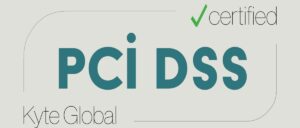Innovation has persisted throughout the course of history, but it has not always progressed in a predictable or linear fashion. Innovation is episodic. Periods when we have seen increases in new ideas and technologies typically coincide with sustained and accelerating economic growth.
Consider: Growth in the Western world from AD 1 to AD 1820 was approximately 6% per century. By comparison, Americans enjoyed a doubling of real output every 32 years throughout the 20th century. Before then, real output required 12 centuries to double.
Economists define these periods as industrial revolutions. Typical of their creativity, they refer to them as the First, Second, Third and Fourth, the First beginning in 1760.
We believe we are living through the Fourth Industrial Revolution today, and that it is driving the current pace of innovation in the marketplace. Building on the Third, a digital revolution occurring since the mid-20th century, the Fourth reflects many technologies—blurring the lines between physical, digital and biological spheres.

Increased Productivity Increases Wealth Creation
As investors in innovation, the transformational impact of the Fourth Industrial Revolution supports the five platforms of growth (global e-commerce, genetics breakthroughs, intelligent machines, new finance and exponential data). Technological and industrial advancements increase economic productivity, which is foundational to wealth creation. Paul Krugman, Nobel Prize winner in economics, noted: “Productivity isn’t everything, but in the long run it is almost everything, as a country’s ability to improve its standard of living over time depends almost entirely on its ability to raise its output per worker.” Today, the average American only needs to work 11 hours per week to match the productivity of a 40-hour work week in the 1950s.
Real-World Examples of Increased Productivity
- When I started my career, I was a bank auditor. In a bank, only the most senior members approved loans. It was typically done in group settings, with highly paid individuals sitting in conference rooms, reviewing files, crunching numbers and deliberating for hours. Today, with FICO (individual credit) scores, virtually no human being looks at any credit request below US$50,000. A computer does it all.
- In the days depicted in the popular TV show Mad Men, which took place in the 1960s and 1970s, advertising was sold based on the number of pages in a magazine or sold as a 30-second television slot. Sales were high touch and it was understood that much of advertising spending was “wasted.” In the current US$600 billion annual advertising market, Google, Facebook and others use algorithms to not only maximise revenue, but to also maximise return on investment (ROI) for their customers. Today, internet ad buying is not only the most automated advertising medium, it’s also the most effective. It can be effective as a branding or a direct-response event.
- One of the most important aspects of any business is the pricing of products. Pricing is usually done with sales, finance and senior management working together to maximise profit. Historically, it was a very labor-intensive research exercise. Today, the pricing of enormous markets is entirely automated. Airlines, e-commerce companies and hotels, just to name a few, allow machines to price their offerings. These are some of the biggest revenue pools in our economy, all completely automated. Pricing can change based on real-time inventory availability, minute-to-minute demand, and even the weather. Algorithms attempt to maximise elasticity of demand across hundreds of thousands of products in real time.
This trend towards increasing productivity, a result of the Fourth Industrial Revolution, is only beginning, in our view. Over the next decade, we believe we will see major technology-driven efficiencies or product improvements in many areas. These will include insurance, medical diagnosis, automotive distribution, industrial design, the pricing and exchange of capital, and the analysis of data.
Franklin Templeton Key risks & Disclaimers:
Important Legal Information
This material is intended to be of general interest only and should not be construed as individual investment advice or a recommendation or solicitation to buy, sell or hold any security or to adopt any investment strategy. It does not constitute legal or tax advice.
The views expressed are those of the investment manager and the comments, opinions and analyses are rendered as of publication date and may change without notice. The information provided in this material is not intended as a complete analysis of every material fact regarding any country, region or market.
Data from third party sources may have been used in the preparation of this material and Franklin Templeton (“FT”) has not independently verified, validated or audited such data. FT accepts no liability whatsoever for any loss arising from use of this information and reliance upon the comments, opinions and analyses in the material is at the sole discretion of the user.
Products, services and information may not be available in all jurisdictions and are offered outside the U.S. by other FT affiliates and/or their distributors as local laws and regulation permits. Please consult your own professional adviser or Franklin Templeton institutional contact for further information on availability of products and services in your jurisdiction.
Issued in the U.S. by Franklin Templeton Distributors, Inc., One Franklin Parkway, San Mateo, California 94403-1906, (800) DIAL BEN/342-5236, franklintempleton.com—Franklin Templeton Distributors, Inc. is the principal distributor of Franklin Templeton’s U.S. registered products, which are not FDIC insured; may lose value; and are not bank guaranteed and are available only in jurisdictions where an offer or solicitation of such products is permitted under applicable laws and regulation.
CFA® and Chartered Financial Analyst® are trademarks owned by CFA Institute.
What are the risks?
All investments involve risk, including possible loss of principal. The value of investments can go down as well as up, and investors may not get back the full amount invested. Stock prices fluctuate, sometimes rapidly and dramatically, due to factors affecting individual companies, particular industries or sectors, or general market conditions. For stocks paying dividends, dividends are not guaranteed, and can increase, decrease or be totally eliminated without notice. Special risks are associated with foreign investing, including currency fluctuations, economic instability and political developments.
MeDirect Disclaimers:
This information has been accurately reproduced, as received from Franklin Templeton Investment Management Limited (FTIML). No information has been omitted which would render the reproduced information inaccurate or misleading. This information is being distributed by MeDirect Bank (Malta) plc to its customers. The information contained in this document is for general information purposes only and is not intended to provide legal or other professional advice nor does it commit MeDirect Bank (Malta) plc to any obligation whatsoever. The information available in this document is not intended to be a suggestion, recommendation or solicitation to buy, hold or sell, any securities and is not guaranteed as to accuracy or completeness.
The financial instruments discussed in the document may not be suitable for all investors and investors must make their own informed decisions and seek their own advice regarding the appropriateness of investing in financial instruments or implementing strategies discussed herein.
If you invest in this product you may lose some or all of the money you invest. The value of your investment may go down as well as up. A commission or sales fee may be charged at the time of the initial purchase for an investment and may be deducted from the invested amount therefore lowering the size of your investment. Any income you get from this investment may go down as well as up. This product may be affected by changes in currency exchange rate movements thereby affecting your investment return therefrom. The performance figures quoted refer to the past and past performance is not a guarantee of future performance or a reliable guide to future performance. Any decision to invest in a mutual fund should always be based upon the details contained in the Prospectus and Key Investor Information Document (KIID), which may be obtained from MeDirect Bank (Malta) plc.





